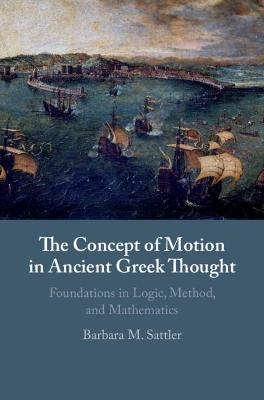
The Concept of Motion in Ancient Greek Thought
Cambridge University Press (Verlag)
978-1-108-47790-1 (ISBN)
This book examines the birth of the scientific understanding of motion. It investigates which logical tools and methodological principles had to be in place to give a consistent account of motion, and which mathematical notions were introduced to gain control over conceptual problems of motion. It shows how the idea of motion raised two fundamental problems in the 5th and 4th century BCE: bringing together being and non-being, and bringing together time and space. The first problem leads to the exclusion of motion from the realm of rational investigation in Parmenides, the second to Zeno's paradoxes of motion. Methodological and logical developments reacting to these puzzles are shown to be present implicitly in the atomists, and explicitly in Plato who also employs mathematical structures to make motion intelligible. With Aristotle we finally see the first outline of the fundamental framework with which we conceptualise motion today.
Barbara Sattler is Senior Lecturer in Philosophy at the University of St Andrews. She works mainly on metaphysics and natural philosophy in the ancient Greek world, with a particular focus on the Presocratics, Plato and Aristotle.
Introduction; 1. Conceptual Foundations; 2. Parmenides's account of the object of philosophy; 3. Zeno's Paradoxes of Motion and Plurality; 4. The atomistic foundation for an account of motion; 5. The Possibility of Natural Philosophy according to Plato I: The Logical Basis; 6. The Possibility of Natural Philosophy according to Plato II: Mathematical Advances and Ultimate Problems; 7. Aristotle's Notion of Continuity – the Structure underlying Motion; 8. Time and Space – the Implicit Measure of Motion in Aristotle's Physics; 9. Time as the simple measure of motion.
| Erscheinungsdatum | 01.10.2020 |
|---|---|
| Zusatzinfo | Worked examples or Exercises |
| Verlagsort | Cambridge |
| Sprache | englisch |
| Maße | 235 x 160 mm |
| Gewicht | 770 g |
| Themenwelt | Geisteswissenschaften ► Philosophie ► Logik |
| Geisteswissenschaften ► Philosophie ► Philosophie Altertum / Antike | |
| Naturwissenschaften | |
| ISBN-10 | 1-108-47790-9 / 1108477909 |
| ISBN-13 | 978-1-108-47790-1 / 9781108477901 |
| Zustand | Neuware |
| Haben Sie eine Frage zum Produkt? |
aus dem Bereich


